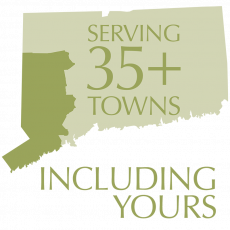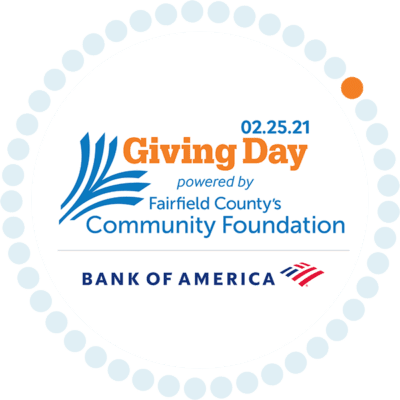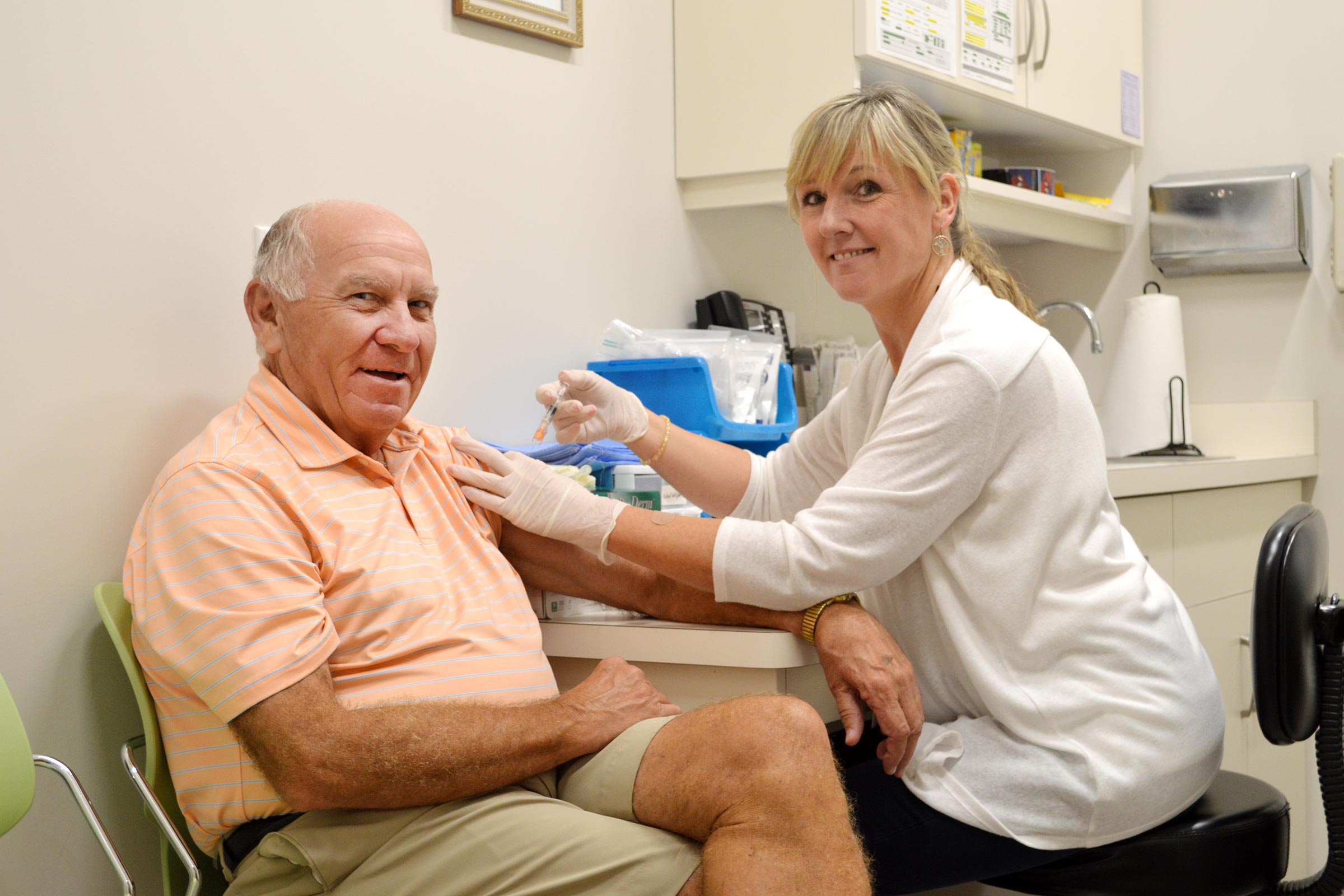Meet Jackie Belowich, BA, RN
Jackie knows her way around the medical profession for sure. Although she became a nurse four years ago, she’s been in the medical field for more than 15 years. RVNAhealth has been lucky to have her for the last three of those years! See how a part-time job in college led her to the profession she considers a calling.
Where did you grow up?
I was born in Smithtown on Long Island but grew up in the Danbury area.
When did you decide you wanted to become a nurse?
It was a part-time job in college that convinced me to be a nurse. I was pre-med and got a job in a doctor’s office as a medical assistant. I worked at the practice for a long time. It was a great job with wonderful doctors, but it made me realize that what I wanted was to spend more time with the patients – to have a more personal relationship with them. Nursing lends itself to that.
What is your favorite part of nursing?
The personal relationship I have with my patients and knowing that I help them with what I do. It’s an honor to be a nurse. It’s a lot of work, but it’s an honor
If you weren’t a nurse, what would you be?
I honestly can’t picture being anything else. It’s a calling. It’s not an easy job — you really have to want to do it – but for me, there’s nothing else.
What do you love to do when you’re not working?
I love to spend time with my girls – they’re 7 and 2.
What would you do if you won the lottery?
Travel for sure. After that, even if I didn’t have to work, I’d still be a nurse. But I’d volunteer my time, and not get paid.
Do you have a favorite nursing moment or story to share?
I had a patient who was diabetic and wheelchair-bound, and had serious complications as a result. I cared for her almost every day. A while later, I went to visit her. As I was on my way out the door, I heard her say to her daughter, “I would never have made it through the last 6 months without Jackie. I wouldn’t have survived.” I really didn’t feel like I did anything major for her. But it showed me that, even when you don’t realize it, you have an impact.
Meet Jennifer Gonch, BSN, RN
Jennifer has been in the medical field for 18 years, and a nurse for 11 of those years. She’s celebrating her third anniversary with RVNAhealth this month. Jennifer has a diverse background and has worked in many areas of nursing – from intensive care and medical/surgical to obstetrics and wound care. She’s even worked as a school nurse. Let’s learn more about her.
Where did you grow up?
I was born in Johnson City, Tennessee, but moved to New Milford when I was six years old. I’ve been there ever since!
When did you decide you wanted to become a nurse?
When I was 10 years old. My aunt went into labor and “caring” for her made such an impact on my young mind that I was hooked.
What is your favorite part of nursing?
The teaching, caring, and helping families find the courage and strength to know they can help their family member. I like to help them see that they’re good enough to care for a loved one and have the tools to do it.
If you weren’t a nurse, what would you be?
A teacher and a mom.
What do you love to do when you’re not working?
Spending time with my kids and my family, reading, and being by the water.
What would you do if you won the lottery?
I’d love to go on vacation, but I would most likely save it for my three kids’ college tuition and needs for the future!
Do you have a favorite nursing moment or story to share?
I have too many to choose just one. I’ve loved my job from the moment I started.
Meet Ashley Snelwar, BSN, RN
Ashley Snelwar is one of those people — one of those nurses — you just like to spend time with. Capable, intelligent, genuine, and fun. When you read Ashley’s answers below, be sure to listen for her southern accent. It’s remarkably endearing.
Where did you grow up?
Charlotte, North Carolina.
When did you decide you wanted to become a nurse?
As a teenager.
What is your favorite part of nursing?
Making a difference in someone’s life.
If you weren’t a nurse, what would you be?
A pilot.
What do you love to do when you’re not working?
I love spending time with my family, traveling, yoga, hiking with my dogs.
What would you do if you won the lottery?
Travel.
Do you have a favorite nursing moment or story to share?
I don’t really have a favorite story, but what comes to mind when asked this question is … I love when I visit or call patients that I do not case manage, and they talk about their own RVNAhealth case manager — my co-workers — with such trust, faith, and respect. It makes me feel so good about the type of nursing we do in home care.
Meet Julie Gold, BSN, RN
Another of RVNA’s exceptional nurses, Julie has been in the field for 15 years and with RVNAhealth for six. A natural nurturer, Julie can’t imagine a career anywhere else. We can’t either!
Where did you grow up?
New Milford, CT
When did you decide you wanted to become a nurse?
After high school, I did a two-year medical assistant program, and then got a job working in a doctor’s office, but I knew it wasn’t where I wanted to stay. A friend convinced me to sign up for an LPN program with her. It turns out that my friend decided not to do the program, but I did, and I loved it! I always knew that I loved caring for and helping people, so when I finished my LPN program, I went straight on to become an RN.
What is your favorite part of nursing?
When a patient says, “Thank you. I couldn’t have gotten through it without you.” It really makes me feel like I made a difference. It’s incredible.
If you weren’t a nurse, what would you be?
I don’t even know. This is what I love. I really don’t think there would be anything else.
What do you love to do when you’re not working?
I have an eight-year-old daughter. I love spending my free time with her. She’s like my best friend — we do everything together.
What would you do if you won the lottery?
I would travel. I feel like that’s the one thing I haven’t done, because I’ve spent a lot of time on schooling. But, I would probably still work. Money only gets you so much in life!
Do you have a favorite nursing moment or story to share?
There was a man I cared for who had been on dialysis for many years. I had cared for him for a while and we got very close. At this point, the dialysis was the only thing keeping him alive. I had the sense he was continuing for his family, but that he wasn’t living his life. One day, I started to talk to him about hospice. The next day, he went into an inpatient hospice facility that he chose for himself. He was able to call all his friends and family to say good bye. Because he wasn’t receiving dialysis anymore, his diet wasn’t restricted, and he was able to eat his favorite foods again. He called to thank me for allowing him to die his way. He always knew what he wanted. He just needed someone to help him say it.



